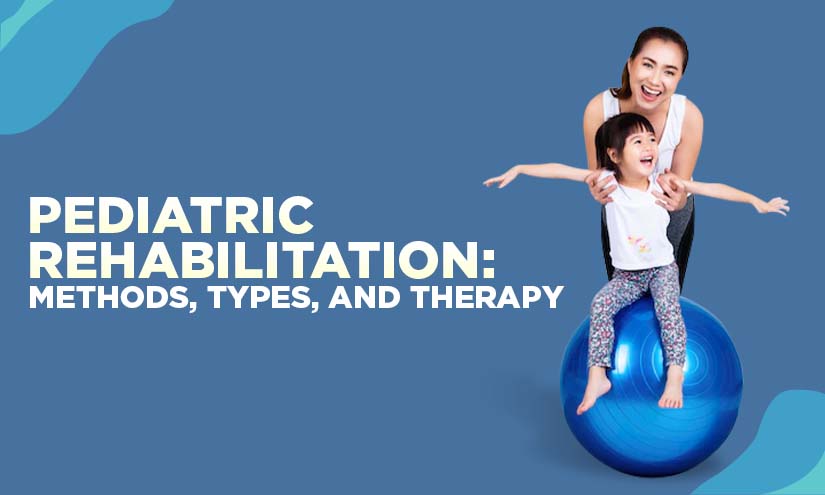Pediatric Rehabilitation
Table Of Contents
- Introduction
- Understanding Pediatric Rehabilitation
- Comprehensive Care Approach
- Empowering Children and Families
- Tailored Interventions for Every Child
- Promoting Inclusion and Participation
- Looking Towards the Future
- Conclusion
Introduction
Pediatric rehabilitation is a beacon of hope for children facing physical challenges, injuries, or developmental delays. It’s a multidisciplinary field that focuses on optimizing the health, function, and quality of life for young patients and their families. In this blog post, we’ll explore the importance of pediatric rehabilitation, its key principles, interventions, and the transformative impact it has on the lives of children worldwide.
Understanding Pediatric Rehabilitation
Pediatric rehabilitation is a specialized branch of medicine that addresses the unique needs of children and adolescents with physical disabilities, injuries, or developmental conditions. Unlike adult rehabilitation, pediatric rehabilitation is guided by the principles of child development, family-centered care, and the belief that every child has the potential to overcome obstacles and thrive. It encompasses a range of interventions aimed at promoting mobility, independence, and participation in everyday activities.
Comprehensive Care Approach
Pediatric rehabilitation takes a holistic approach to care, recognizing the interconnectedness of physical, emotional, and social well-being in children. A multidisciplinary team of specialists, including pediatricians, physiotherapists, occupational therapists, speech-language pathologists, psychologists, and social workers, collaborates to provide comprehensive and coordinated care tailored to each child’s unique needs. This team-based approach ensures that all aspects of the child’s health and development are addressed, from physical therapy and assistive technology to behavioral interventions and family support services.
Empowering Children and Families
Central to pediatric rehabilitation is the empowerment of children and their families to actively participate in the rehabilitation process and advocate for their needs. Rehabilitation professionals work closely with families to set realistic goals, develop personalized treatment plans, and provide education and support every step of the way. By empowering children to achieve their full potential and families to become advocates for their care, pediatric rehabilitation fosters resilience, independence, and confidence in children facing physical challenges.
Tailored Interventions for Every Child
Pediatric rehabilitation interventions are tailored to meet the unique needs and goals of each child, taking into account their age, diagnosis, abilities, and preferences. Treatment may include physical therapy to improve strength and mobility, occupational therapy to enhance daily living skills, speech therapy to address communication difficulties, and psychological support to promote emotional well-being. Assistive devices, adaptive equipment, and technology-based interventions are also used to maximize function and participation in activities at home, school, and in the community.
Promoting Inclusion and Participation
Pediatric rehabilitation aims to promote inclusion and participation for children with disabilities, ensuring they have equal opportunities to engage in activities they enjoy and lead fulfilling lives. Rehabilitation professionals work collaboratively with schools, community organizations, and other stakeholders to create inclusive environments that accommodate the needs of children with disabilities and promote their social integration. By fostering a culture of acceptance and understanding, pediatric rehabilitation helps break down barriers and create opportunities for children of all abilities to thrive.
Looking Towards the Future
As our understanding of child development and rehabilitation science continues to evolve, so too does the field of pediatric rehabilitation. Advances in technology, research, and clinical practice hold the promise of improving outcomes and enhancing the lives of children with disabilities. From innovative therapies and interventions to advocacy efforts aimed at promoting disability rights and accessibility, the future of pediatric rehabilitation is bright with possibilities for positive change.
Conclusion
Pediatric rehabilitation is a cornerstone of care for children with physical disabilities, injuries, or developmental conditions. By providing comprehensive, family-centered interventions tailored to each child’s unique needs, pediatric rehabilitation empowers children to reach their full potential and lead fulfilling lives. As we continue to advance the field through research, innovation, and advocacy, we are committed to ensuring that every child has the opportunity to thrive, regardless of their abilities or challenges.
“At Arunalaya Healthcare, we pride ourselves on being the best physiotherapy center in Delhi. Our dedicated team of experts offers top-notch physiotherapy treatment tailored to your needs. Experience the difference with the leading physiotherapy clinic in Delhi area. Our commitment to excellence ensures that you receive the best physiotherapy care possible. Trust Arunalaya Healthcare for the best physiotherapy treatment in Delhi. Our advanced physiotherapy solutions set us apart as the premier choice for your rehabilitation needs. When it comes to physiotherapy, our center stands out as the best in Delhi. Choose Arunalaya Healthcare for comprehensive physiotherapy solutions that deliver results. Visit Arunalaya Healthcare today and discover why we are the best physiotherapy center in Delhi.”
Pediatric rehabilitation care | Child development support | Therapy for children with disabilities | Family-centered rehabilitation | Promoting inclusion for children | Tailored therapies for kids |Assistive technology in pediatrics | Enhancing mobility in children | Holistic pediatric care strategies

